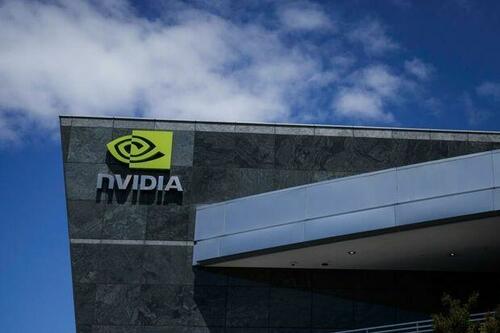The Chinese military, state-run AI research institutes, and universities, have been buying the highest-end Nvidia semiconductors banned by the US from export to China in small batches, according to a Reuters review of tender documents.
The documents reveal dozens of transactions involving Nvidia's A100, as well as the more potent H100 chips – both banned by the U.S. in 2022 – along with their less advanced counterparts, the A800 and H800, developed for but also barred from the Chinese market. The graphic processing units (GPUs) by Nvidia, vital for AI due to their efficiency in processing large data volumes for machine-learning tasks.
Purchasers included elite universities as well as two entities subject to U.S. export restrictions - the Harbin Institute of Technology and the University of Electronic Science and Technology of China, which have been accused of involvement in military matters or being affiliated to a military body contrary to U.S. national interest.
The former purchased six Nvidia A100 chips in May to train a deep-learning model. The latter purchased one A100 in December 2022. Its purpose was not identified. -Reuters
Interestingly, neither Nvidia nor its authorized retailers appear in these transactions - pointing directly to a burgeoning underground market thriving on excess stock from large shipments to U.S. firms or imports via third-party countries like India, Taiwan, and Singapore. This black-market ecosystem poses a formidable barrier to U.S. efforts in curbing the flow of these critical technologies.
Nvidia maintains that it has adhered to all applicable export control laws, and expects the same from its customers. While the company says it's willing to take action against unlawful resale, their ability to do so is questionable.
The US Department of Commerce, meanwhile, continues to stress the importance of tightening export controls.
Chris Miller, a professor at Tufts University, says that while the goal is "to throw sand in the gears of China's AI development," enforcement is a pipe dream.
The Reuters review sheds light on over 100 tenders for the procurement of A100 chips by state entities, with post-ban tenders indicating purchases of the A800 model. Notable buyers include Tsinghua University, often likened to MIT, and various military entities, with the purposes of these acquisitions ranging from AI development to undisclosed military uses.
That said, China won't be building GPT 5 anytime soon...
The quantities of most purchases are, however, very small, far from what's needed to build a sophisticated AI large language model from scratch.
A model similar to OpenAI's GPT would require more than 30,000 Nvidia A100 cards, according to research firm TrendForce. But a handful can run complex machine-learning tasks and enhance existing AI models. -Reuters
The Reuters report comes days after the Wall Street Journal reported that Chinese customers don't want nerf'd chips designed for export.
The U.S. tech company may have found some wiggle room, but it faces a bigger problem: Chinese cloud companies—some of Nvidia’s biggest customers globally—aren’t so keen on buying its lower-powered AI chips.
China’s largest cloud companies have been testing Nvidia samples since November. Alibaba Group and Tencent have indicated to Nvidia that they would order far fewer of its chips this year than they had originally planned to buy when it was offering its now-banned products, people familiar with the matter said.
Both Alibaba and Tencent are shifting some of their advanced semiconductor orders to Huwai and other domestic companies, and are relying more on chips they can develop in-house, according to the report.
Chinese cloud companies currently source around 80% of their high-end AI chips from Nvidia - a figure likely to fall to 50% - 60% over the next five years, according to TrendForce analyst, Frank Kung - who added that tightening US chip controls in the future would result in additional pressure on Nvidia's China sales.
